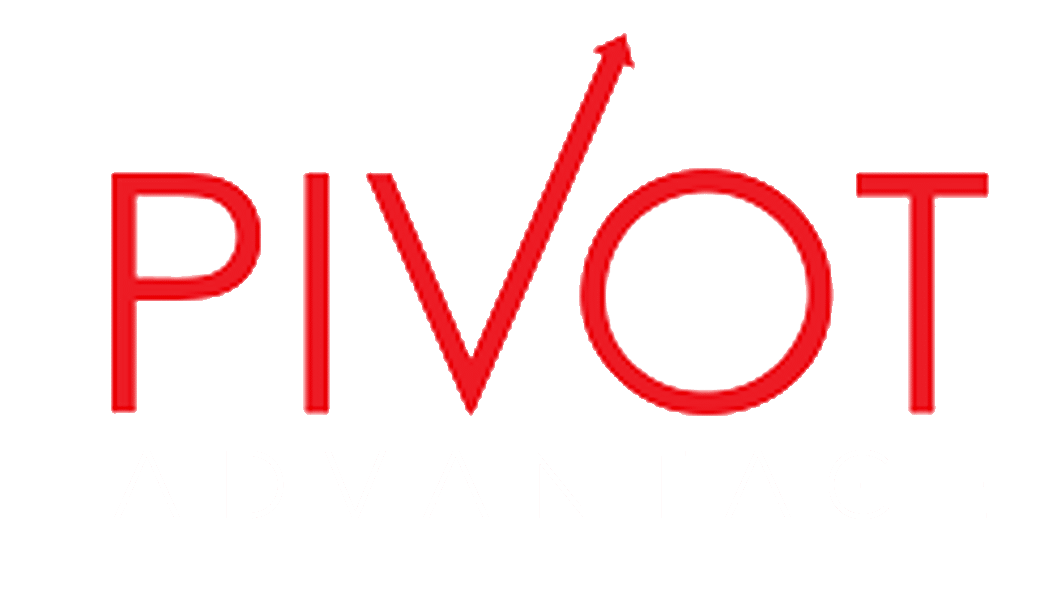For individuals starting on the path to owning a home, amassing the necessary funds can feel overwhelming. However, the introduction of the First Home Savings Account (FHSA) offers an incredible opportunity for Canadians to build savings for their dream home with the benefit of tax breaks. This article will explore key aspects of the FHSA that every prospective homeowner in Vancouver should know.
We will discuss eligibility criteria, contribution limits associated with these accounts, and strategies for managing multiple FHSAs and handling over contributions. Additionally, we will delve into designating a spouse as the successor account holder and its implications on taxes and withdrawals.
For those who have emigrated from Canada but still wish to contribute to their FHSA, we will outline rules regarding contributions after emigration and limitations on withdrawing funds. Lastly, we’ll discuss additional housing incentives introduced in Budget 2023, such as the Multigenerational Home Renovation Tax Credit and other programs worth considering alongside your First Home Savings Account.

What is Accounting Information?
The federal government has introduced a new registered savings plan called the Tax-Free First Home Savings Account (FHSA) to help Canadians save for their first home. The FHSA offers a tax-free limit of up to $40,000 and other attractive features for first-time home buyers.
Eligibility Criteria for Opening an FHSA
To open an FHSA, you must be a Canadian 18- or older resident who has never owned a principal residence before. Additionally, you must have a valid Social Insurance Number (SIN) and deal with a participating financial institution such as banks, credit unions, or trust companies offering these accounts.
Contribution Limits and Tax Benefits
- Annually, you can place up to $10K into a FHSA with an overall maximum of $40K.
- All contributions are made using after-tax dollars but grow tax-free within the account.
- When purchasing your first home, tax-free withdrawals can be made without affecting other registered plans like RRSPs or TFSAs.
For first-time home buyers in Vancouver, the FHSA is a great option to save for a down payment. Unlike other registered plans like the Home Buyers’ Plan (HBP), the FHSA does not require you to repay the funds withdrawn. Additionally, the FHSA can be combined with other programs like the HBP or RRSPs to maximize your savings.
It’s important to note that the FHSA is not the same as a Tax-Free Savings Account (TFSA). While both accounts offer tax-free growth, the FHSA is specifically designed for home buyers and has contribution limits and withdrawal restrictions that differ from the TFSA.
When considering opening an FHSA, shopping around and comparing offerings from different financial institutions is essential. Some institutions may offer higher interest rates or investment options like mutual funds or Guaranteed Investment Certificates (GICs) for your FHSA funds.
Home Buyers’ Plan (HBP)
The Home Buyers’ Plan (HBP) is another program the federal government offers to help first-time home buyers. The HBP allows you to withdraw up to $35,000 from your Registered Retirement Savings Plan (RRSP) tax-free for your home purchase. However, unlike the FHSA, the funds withdrawn from the HBP must be repaid within 15 years.

Registered Retirement Savings Plan (RRSP)
The Registered Retirement Savings Plan (RRSP) is a popular savings plan that allows Canadians to save for retirement. However, the RRSP can also help fund a first home purchase through the Home Buyers’ Plan (HBP). Additionally, the RRSP can be combined with the FHSA to maximize your savings potential.
Tax-Free Savings Account (TFSA)
The Tax-Free Savings Account (TFSA) is another registered savings plan that offers tax-free growth. However, unlike the FHSA, the TFSA does not have contribution limits specific to home buyers or withdrawal restrictions for home purchases. As a result, the TFSA is an excellent option for Canadians looking to save for various goals, including a first home purchase.
The TFSA, a significant boon for first-time homebuyers, offers the opportunity to set aside funds without fretting about taxation. Now that you understand the basics of this account let’s look at how best to manage multiple FHSAs and overcontributions.
Managing Multiple FHSA Accounts and Over Contributions
The federal government allows individuals to hold more than one First Home Savings Account (FHSA), which can benefit those looking to diversify their investments across various financial institutions, such as banks, credit unions, or mutual funds. However, managing overcontributions in multiple accounts may require some strategic planning.
Strategies for Handling Over Contributions
- Waiting until the following year: If you’ve accidentally contributed too much to your FHSA(s), you can wait until the next calendar year when your contribution room resets.
- Making a qualifying withdrawal: Another option is to withdraw excess funds by making a qualifying home purchase using your FHSA savings. Only first-time home buyers are eligible for this benefit.
- Transferring funds to an RRSP: You may also consider transferring any extra contributions from your FHSA account into a Registered Retirement Savings Plan (RRSP) under the Home Buyers’ Plan (HBP). This strategy will help avoid penalties while keeping your savings tax-sheltered (source).
Transferring Funds Between Accounts
It’s possible to transfer money between different FHSA accounts held at separate financial institutions without affecting contribution limits. Please consult each institution on their specific procedures and fees for transferring funds.
Managing multiple FHSAs and overcontributions requires careful planning to ensure all contributions remain within the allowable limits. Designating a partner as the succeeding holder of an account is critical for safeguarding one’s savings, so it is imperative to comprehend how this procedure functions and what effects it may have on taxes and withdrawals.
Designating Spouse as Successor Account Holder
If you do not use your First Home Savings Account (FHSA) funds for a qualifying first home purchase by the specified deadline, you may designate your spouse as the successor account holder. This ensures they can continue using these savings towards purchasing their first home without penalties.
Process of Designating Spouse as Successor Holder
To designate your spouse as the successor account holder, contact your financial institution, such as banks or credit unions where you hold FHSA accounts. They will guide you through any necessary paperwork and update the account information accordingly.
Implications of Taxes and Withdrawals
- Your spouse will inherit all tax benefits associated with FHSAs, including tax-free growth of investments like mutual funds and guaranteed investment certificates.
- The withdrawal limit remains unchanged at $40,000; however, it now applies to original contributions and those made by the designated successor holder.
- No additional taxes are incurred when transferring an FHSA to a spouse upon designation; withdrawals remain tax-free if used for a principal residence purchase within two years after making them eligible under Home Buyers’ Plan rules.
An FHSA is an excellent way for first-time home buyers to save for a down payment. It is a registered account that allows Canadians to save up to $5,000 per year towards a home purchase. Unlike a Registered Retirement Savings Plan (RRSP), contributions to an FHSA are not tax-deductible. However, the investment growth and withdrawals are tax-free, making it an attractive option for many home buyers.
It is important to note that an FHSA differs from a Tax-Free Savings Account (TFSA). While both accounts offer tax-free investment growth, the TFSA has no restrictions on how the funds can be used, whereas the FHSA is specifically designed for home buyers.
Under the Home Buyers’ Plan, individuals can withdraw funds from their FHSA to purchase a home. The funds must be repaid within 15 years, and any amounts not repaid are added to the individual’s taxable income for that year. However, if the funds are used for a qualifying home purchase, they can be refunded to the FHSA without penalty.
An FHSA is an excellent option for those looking to save for a home purchase. Contact your financial institution to learn more about opening an FHSA and how it can benefit you as a first-time home buyer.
Designating a spouse as a successor account holder is an important decision that should be made considering both the tax implications and withdrawal restrictions. When setting up a First Home Savings Account, it is also necessary to understand the rules regarding contributions after emigration.

Contributing After Emigrating from Canada
Once you emigrate from Canada, it’s essential to understand how this affects your first-time home buyer journey and the use of your Home Savings Account. Although you can still contribute to your existing Home Savings Account after leaving the country, there are certain limitations on accessing these funds.
Rules Regarding Contributions After Emigration
You may continue contributing to your existing Tax-Free Savings Account, including Home Savings Accounts, even after moving away from Canada. However, any profits acquired inside the account could be liable to taxes in your new home.
Limitations on Withdrawing Funds
Unfortunately, if you decide to withdraw funds from a Home Savings Account for a qualifying home purchase after emigrating, this is not permitted. You must make a qualifying withdrawal while being a resident of Canada at the time of withdrawal. If you need access to these savings while living abroad, consider transferring them to other investment options like Guaranteed Investment Certificates (GICs), Mutual Funds, or Credit Unions available in your new location.
Depositing into a First Home Savings Account after relocating to the United States is an advantageous strategy for those who are freshly arrived and searching for housing prospects. Budget 2023 provides additional incentives that can be taken advantage of when considering home renovations or other housing purchases.
Additional Housing Incentives in Budget 2023
The Canadian government’s Budget 2023 introduced several housing-related incentives alongside the Tax-Free First Home Savings Account (FHSA) to support Canadians on their journey toward homeownership. One such measure is the Multigenerational Home Renovation Tax Credit.
Overview of the Multigenerational Home Renovation Tax Credit
This tax credit seeks to motivate families to modify their residences and make them more suitable for seniors or those with impairments. Eligible expenses include costs related to home modifications, such as installing ramps, widening doorways, and adding grab bars in bathrooms. The credit covers up to $10,000 worth of eligible expenses per year at a rate of 15%, resulting in a maximum annual benefit of $1,500.
Other Housing Incentives to Consider
- Home Buyers’ Amount: A non-refundable tax credit available for first-time home buyers that can save you up to $750 on your federal taxes.
- National Housing Strategy: A comprehensive plan addressing various aspects of Canada’s housing needs through initiatives like affordable rental units and investments in community housing projects.
Conclusion
In conclusion, understanding the tax benefits and eligibility criteria for opening a First Home Savings Account (FHSA) is crucial for first-time home buyers. As a business owner, exploring all options available with your financial institution or credit union is essential. Managing multiple FHSA accounts and overcontributions can be tricky, but there are strategies to handle them effectively. Designating a spouse as a successor account holder has implications on taxes and withdrawals while contributing after emigrating from Canada has limitations on withdrawing funds.
Additionally, the Budget 2023 offers more housing incentives, such as the Multigenerational Home Renovation Tax Credit, that could benefit FHSA holders. If you’re a first-time home buyer, other options, such as the Registered Retirement Savings Plan (RRSP) or Tax-Free Savings Account (TFSA) to supplement your FHSA funds are worth considering. The Home Buyers’ Plan (HBP) allows you to withdraw funds from your RRSP to buy or build a qualifying home, while TFSA contributions grow tax-free and can be used towards a home purchase.
As you save for your first home purchase, it’s essential to remember that the FHSA can only be used toward the purchase of a principal residence. FHSA funds can be invested in guaranteed investment certificates (GICs), mutual funds, and other eligible investments. Consult a financial advisor in Vancouver if you need help with the best investment strategy for your FHSA.
If you’re ready to take advantage of these savings opportunities and need guidance in managing your finances efficiently, contact Pivot Advantage Accounting and Advisory Inc. today!
FAQs in Relation to Fhsa Eligibility Criteria
What are the FHSA Eligibility Criteria?
To be eligible for an FHSA, you must meet the following criteria:
- You must be a resident of Canada.
- You must be a prospective first-time home buyer.
- You must be at least 18 years old.
- You must have a valid social insurance number (SIN).
- You must have a qualifying home that you intend to buy or build.
It’s important to note that the qualifying home must be located in Canada, and you must intend to make it your principal residence within one year of buying or building it.
What are the FHSA Contribution Limits?
The annual contribution limit for an FHSA in 2023 is $8,000. However, the government has not announced any changes to this limit for 2023. Therefore, monitoring updates from official sources like Canada Revenue Agency for future adjustments is essential.
What is Section 24 of the FHSA?
Section 24 of the FHSA refers to a specific part of the legislation governing these accounts. However, without further context or information on which document you’re referring to, it’s impossible to provide a definitive answer about its content or implications.
What is the Minimum Holding Period for an FHSA?
The minimum holding period before qualifying withdrawals from your First Home Savings Account (FHSA) is four years after opening it. This ensures that funds are used primarily towards purchasing your first home rather than short-term savings objectives. FHSA funds can be withdrawn tax-free but must be repaid within 15 years. If you fail to repay the withdrawn amount, it will be added to your taxable income for that year.
If you’re a first-time home buyer, an FHSA can be a valuable tool to help you save for your down payment. Contact Pivot Advantage Accounting and Advisory Inc. to learn how we can help you take advantage of the Home Buyers’ Plan and other tax-saving strategies.


